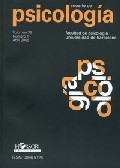The residual effect of cyclophosphamide is not required to evoke the conditioned immune response
Keywords:
condicionamiento de aversión al sabor, inmunosupresión condicionada, efecto residual de la ciclofosfamida, taste aversion conditioning, conditioned immunosuppression, residual effect of cyclophosphamideAbstract
The goal is to find out if the residual immunodepressant effect of cyclophosphamide is necessary for the conditioned antibody response to take place. Random-bred male mice were conditioned with a 0.15% saccharin solution as the conditioned stimulus, and with the immunosuppressant drug cyclophosphamide, at 50 and 250 mg/kg, as the unconditioned stimulus. Four days after conditioning with 50 mg/kg of cyclophosphamide, or 14 days after conditioning with 250 mg/kg thereof, mice were immunized with rat erythrocytes and thereafter drank a saccharin solution. The results were: (i) the higher dose of cyclophosphamide left a residual effect, whereas the lower dose did not, and (ii) presentation of a saccharin solution did not impair the antibody response to rat erythrocytes in any case. It was concluded that, regardless of the residual effect of cyclophosphamide, conditioning of the antibody response did not occur.Downloads
Published
2012-02-08
Issue
Section
Articles
License
The authors who publish in this journal agree to the following terms:
Authors transfer to the publisher all copyright for the full term of protection and for all the world.
The authors can post a copy of their articles in accordance with the policy of free access to the journal.


